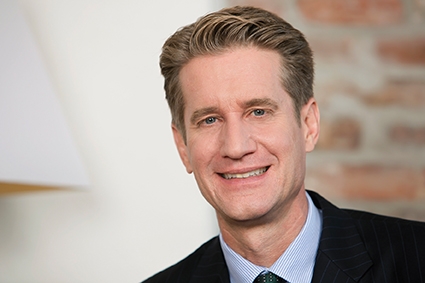Bryza: Turkish Democracy is Not Dead
INTERVIEW, Voice of America Georgian service
Following Turkey’s vote, we spoke to Senior Fellow at the Atlantic Council, Matthew Bryza, who previously served as US Ambassador to Azerbaijan and currently resides in Istanbul.
Western media called the referendum results the death of Turkish democracy. Is Turkey’s democracy dead?
By no means is Turkish democracy dead. Look at what happened: the difference in Turkish democracy today compared to yesterday is really nothing. The reality was that President Erdogan amassed more influence, more power, than any Turkish leader other than Mustafa Kemal Ataturk. What matters now is how he uses his legalized powers in future.
According to the Turkish Constitution, the president was a figurehead, though that did not limit Erdogan from prosecuting and sacking thousands after the alleged coup. Why did this referendum matter for Erdogan, aside from extending his term in office?
I thought long ago, even before the coup, that these changes were going to happen. If you examine Turkish politics at the time, it was clear that he was going to get power. What changes beyond that he’s able to stay in power longer? I’d say ‘not much’.
It was a narrow win at 51% to 49%. Is Turkey coming out of this as a more divided society?
I think that’s the key point: Turkish society been divided for some time. In the last Parliamentary election, Erdogan’s party won 49.5% of the votes. The country is as evenly spilt as it can possibly be between supporters and opponents. Now that division is even firmer and emotions are stronger due to many questioning the legitimacy of the referendum. Questioning the result, legitimacy is going to lead to further polarization, which was already quite strong.
For the first time ever, President Erdogan lost three large cities in Turkey. The ‘No Vote’ concentration is all along the coastline- northwest Turkey and southeast Turkey; the Kurdish majority area voted no, and the other no was northeast Turkey, those regions closest to Georgia. I interpret that as sign of how much closer Georgia is to Europe than the Anatolian heartland in Turkey. The closer the people are to Europe and Georgia, the stronger the no vote was.
Do you expect any changes in Turkey’s foreign policy?
Not at all. I don’t feel that the referendum does much except that Erdogan can run again for two more 5-year terms. In foreign policy, there’s no change at all: Turkey remains where it is, has the same problems to sort out, such as its anger about US partnership with PKK affiliated Kurdish militia and how to deal with Russia.
One exception is that President Erdogan is likely to move forward with reinstating the death penalty. If that happens, then Turkey’s de facto EU accession process will be ended.
Erdogan argued that the new system would resemble that of France and the US. What are the parallels here?
I think he’s talking about political power being more centralized in the presidency in both the US and France. The US has no Prime Minister, with the President in charge of the entire executive branch, though it is constrained by judiciary and congress.
On paper, it’s the same in Turkey, the difference being that alternative institutions in the US are much stronger and more independent than in Turkey.
Referendum supporters suggest that replacing the parliamentary system with an executive presidency will modernize the country. What kind of modernization are we talking about?
I don’t really see how this is step towards modernization. Modern advanced political systems around world often have a parliamentary system of government like the UK.
We know that the quest has been to use this concentration of power to reshape the Turkish state in a way that many would say is the opposite of modernizing.
Turkey is coming out of this referendum as a less democratic state. Do you also expect a rising of religion in governance?
I don’t. If we look at Turkish history, going back to the sultans, before the Republic, Islam played a greater and smaller role every few decades. Sometimes Islam defined social and political norms more than at other times.
Erdogan is seen by conservative, more pious, Turks as somebody who has enabled them to gain respect, not be looked down on; to be respected business people. Strong believers, of course, see Islam playing a greater role in society. In Istanbul and many big cities, there’s pressure on restaurants and bars that serve alcohol- that there be high excise taxes on alcohol to discourage drinking. Many argue to make it more difficult for women to prosper in the workplace. There are norms that are mixed with Islam and this traditional Anatolian culture that are difficult to separate. There is a degree of political Islam, but so distant from what you see elsewhere in the Middle East.
What kind of example is Turkey, a NATO member, setting for countries in the region, like Georgia, which has Euro-Atlantic aspirations?
Georgia has its own values and strong ambitions. I support them wholeheartedly. I don’t think Georgians need inspiration from anybody to have a thirst to join the transatlantic community. Even if there are growing challenge to Turkish democracy, don’t worry too much about what example Turkey sets for NATO, especially when it comes to Georgia.
The interview was originally published on http://www.amerikiskhma.com/a/turkey-after-referendum/3816809.html
Nana Sajaia, Voice of America












